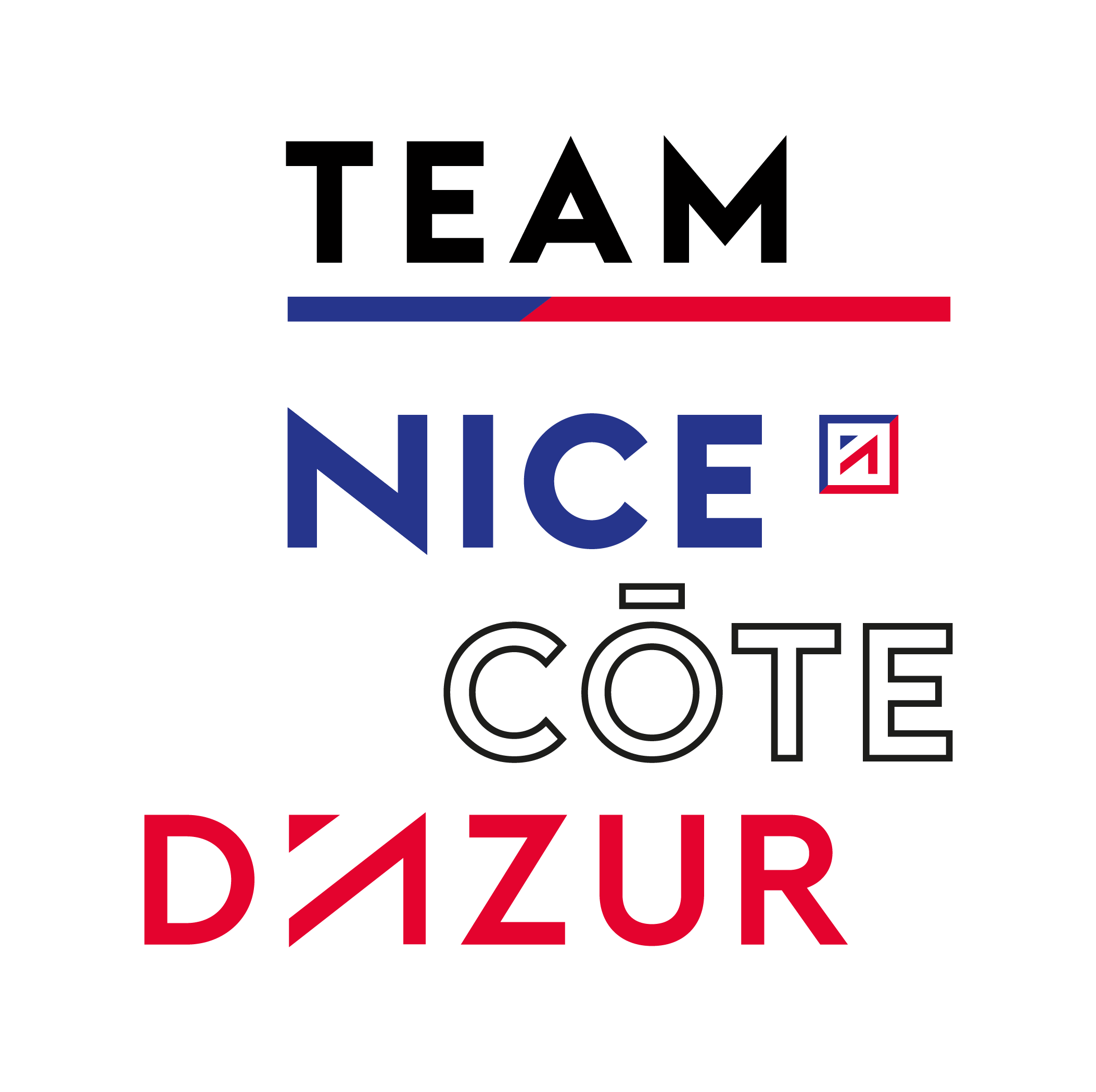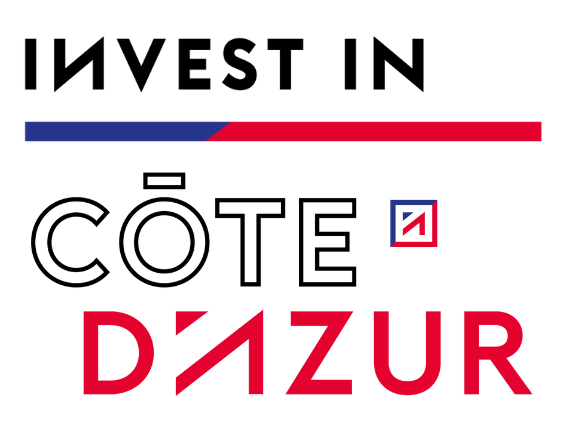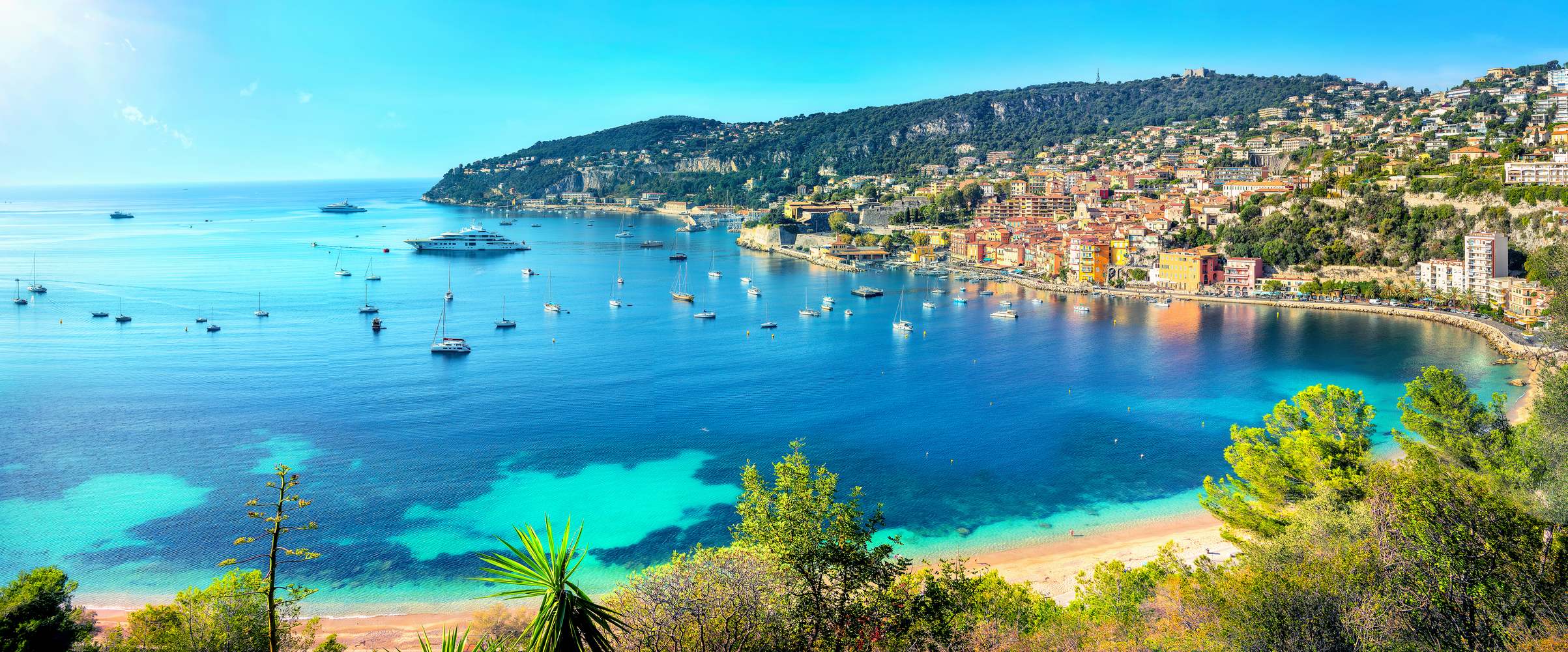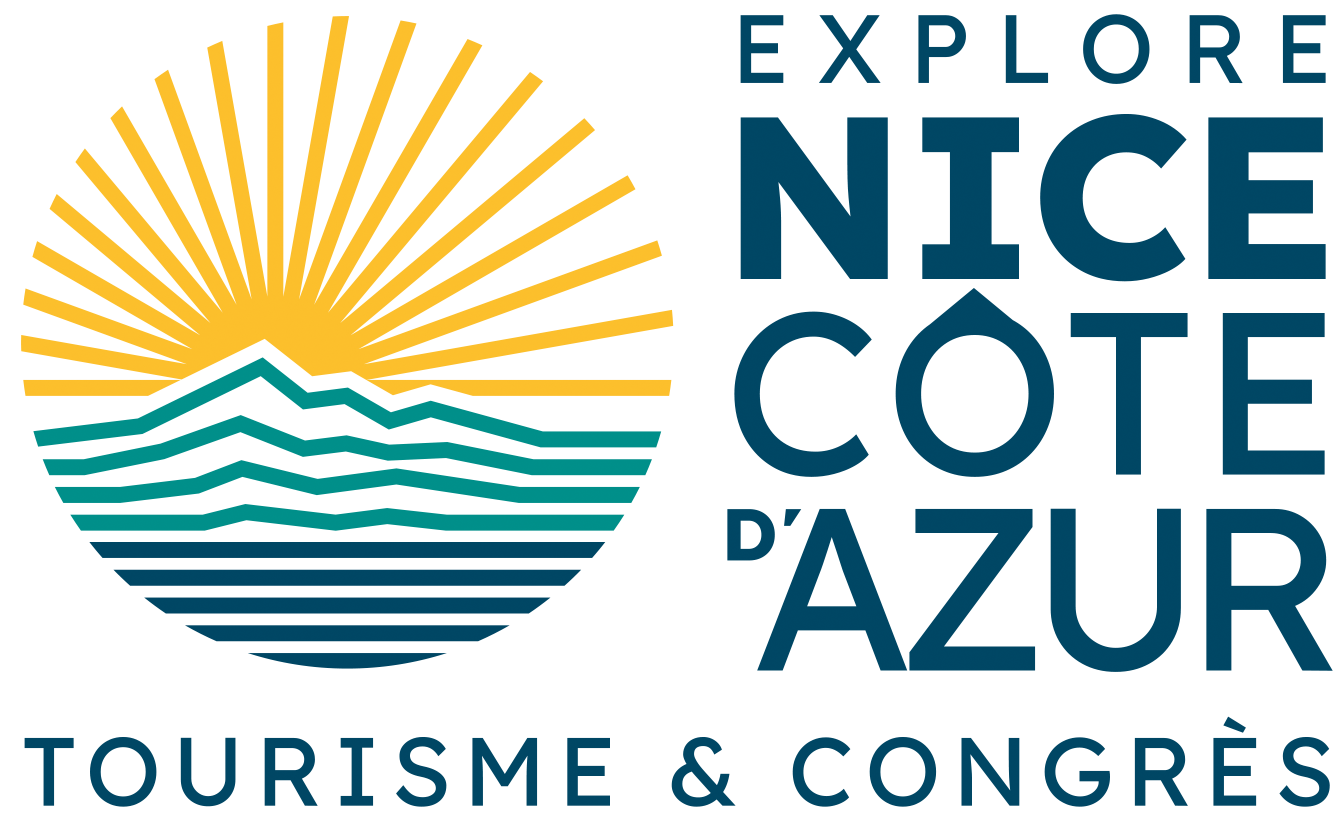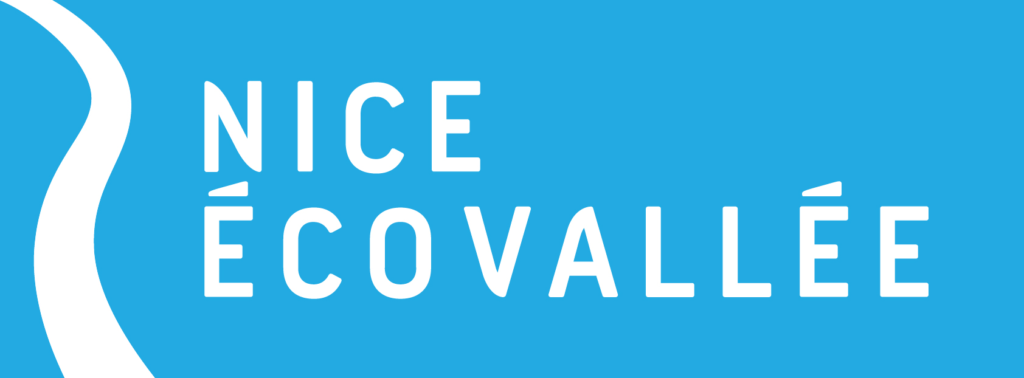Working on the Côte d'Azur
The french labour code : the fundamentals for expatriates

If you are coming to work in France, you need to know the French laws and the French Labour Code.
Employment contract
In France, the employment contract is drawn between the employer and the employee. It states the income, the job title, the duration of the contract, as well as the employee’s duties. There are different types of employment contracts depending on the duration and duties performed : permanent contract, fixed-term contract, part-time contract, intermittent, etc.
Useful links
- Employment contracts in France (french):https://travail-emploi.gouv.fr/droit-du-travail/les-contrats-de-travail/
Wages
In exchange of the work delivered, the employee will receive a basic wage to which can be added incentives and bonuses. To neutralize the consequences of an unequal repartition of days throughout the different months in a year, the French Labour Code states that the monthly wage has to be determined regardless of the number of days in a month: this is the “monthly salary payments” principle. Yet, this principle cannot be applied to all employees. It excludes the home workers, the seasonal workers and the occasional workers.
The minimum wage (« Salaire Minimum de Croissance – SMIC ») is the salary under which it is forbidden to pay an employee in France. Since January 1st, 2019, the gross hourly earning of the SMIC in France is set at €10.03.
Useful links
- Wages in France (french):https://travail-emploi.gouv.fr/droit-du-travail/la-remuneration/
Working hours
The legal working time in France is set at 35h/week full time. This duration does not represent the minimum nor the maximum working hours. There are also part-time contracts. Yet, depending on the companies’ own collective agreements, the weekly working hours can be of more than 35h.
Useful links
- Working time in France (french)https://travail-emploi.gouv.fr/droit-du-travail/temps-de-travail/
French Labour Code
Find out more about the fundamentals of the French Labour Code.
Useful links
- The Labour Law in Francehttps://www.gouvernement.fr/en/labour-law-reform
Do you need a work permit?

o work in France, whether you are a foreign employee in a company based in France or abroad, you will need a work permit. This official document allows you to take up a paid employment in the country.
There may also be cases where a work permit exemption applies, and where residence permits can be used as a work permit.
What is a work permit?
A work permit may take various forms:
- A long-stay visa equivalent to a residence permit (VLS-TS)
- A residence permit authorizing the holder to take up paid employment
- A specific work permit for people whose residence permit does not allow them to work
Useful Link
- See our section “Visas, staying, working”: https://www.welcometothecotedazur.com/en/coming-to-france/visas-staying-working/
- More infos about the work permit – Welcome to France official website: https://www.welcometofrance.com/en/fiche/obtaining-a-work-permit
- Positions subject to specific regulatory conditions (French): https://bpifrance-creation.fr/entrepreneur/activites-reglementees
First application for a work permit and renewal

To work in France, whether you are a foreign employee in a company based in France or abroad, you will need a work permit. This official document allows you to take up a paid employment in the country. Find here informations about how to apply and renew your work permit, to start and continue your professional activity on the Côte d’Azur.
Your first application for a work permit
For employees living outside France, the employer should contact the foreign labor department of the local employment authorities (DIRECCTE) covering the place where the employee will be working, in order to apply for a work permit, this involves initiating the so-called introduction procedure.
For employees resident in France, the employer must ensure that his future employee has a residence permit which authorizes him to work. To do this, the employer must request the authentication of his residence permit from the Prefecture that issued the permit.
If the foreign talent does not have such a title, a request for a work permit for the post considered is filed by the employer with the Direccte of the place of domicile of the foreign national (source : welcometofrance.com)
Useful Link
- Obtaining a work permit – Welcome to France official website:https://www.welcometofrance.com/en/fiche/obtaining-a-work-permit
- If you are a foreign student, see our section “ Visas and entry requirements for foreign students”:https://www.welcometothecotedazur.com/en/studying/visas-and-entry-requirements-for-foreign-students/
- If you are a foreign researcher or a doctoral/phd student , see our section “Doing research – Visas and residence permits”:https://www.welcometothecotedazur.com/en/doing-research/visas-and-residence-permits/
Renew your work permit
Renew your work permit
A “formalities / residence permits” service based in Sophia-Antipolis deals exclusively with administrative formalities to facilitate the renewal of residence permits / work permits in the Alpes Maritimes territory.
This service is set up to provide an interface between the establishments (employers) and the prefecture to simplify administrative procedures for foreign companies and employees. Please find schedules, contact and practical sheets.
EDRH online service for the renewal of residence permits for foreign employees based in Sophia Antipolis (French): http://www.edrh-sophiaantipolis.com/infos-formalites–titres-de-sejour-5.html
Useful Link
- EDRH online service for the renewal of residence permits for foreign employees based in Sophia Antipolis (French):http://www.edrh-sophiaantipolis.com/infos-formalites–titres-de-sejour-5.html
- Procedure for renewing a residence permit in the Alpes Maritimes region – Prefecture des Alpes- Maritimes (French):http://www.alpes-maritimes.gouv.fr/Demarches-administratives/Immigration-et-integration/Titres-de-sejour-et-documents-de-voyage/Renouvellement
Employment on the Côte d’Azur

Key figures
There are about 2 million working people on the Côte d’Azur, including more than 450,000 in the Alpes-Maritimes Department. Today, the South Region is the third largest French region in terms of job and business creation after the Ile de France and the Auvergne-Rhône-Alpes areas. The South Region is also the third largest region with the highest wages in France, and the third largest region in terms of GDP/inhabitants.
Executives and professional occupations represent about 16.6% of the total jobs in the South Region, which makes it the third highest percentage in France.
70% of the jobs on the Côte d’Azur are related to the Services industry, especially Tourism (hotels, catering and transportation), Administrative Services, Specialized Activities, Scientific and Technological Activities, and Real Estate.
The Côte d’Azur is renowned for its Tourism industry, but there are also other highly developed recruiting sectors. Today, the Manufacturing industry represents a key sector with a positive economic impact on the region. In particular, the construction and transport material activities account for more than 3,900 jobs, the food industry for more than 2,500 jobs, and the chemical industry for more than 4,900 jobs. Due to its demographic specificities, the “Silver Economy” is also accelerating on the Côte d’Azur.
Employment, Accommodation, Manufacturing, Tourism… Find out more about the Côte d’Azur through its key numbers.
Useful links
- Key figures and economic overview of the Côte d’Azur in 2019 – CCI Nice Côte d’Azur (French):https://www.cote-azur.cci.fr/wp-content/uploads/2019/09/chiffrs-cles-2019.pdf
- Key economic indicators of the Alpes-Maritimes and PACA region:https://www.cote-azur.cci.fr/solutions/les-publications/
Average wages
From one French region to the other, the average wages can vary. They are higher in the Paris area than elsewhere in France. In 2016, the average income in the private sector in France was set at €2.238/month and the median salary at €1.789/month according to the INSEE (“Institut National de la Statistique et des Etudes Economiques).
Average annual net income per region in the Private sector in 2015:
- Île de France : 29.010€
- Auvergne-Rhône-Alpes : 21.840€
- Occitania : 21.550€
- French Guiana : 21.510€
- Centre Val de Loire : 21.260€
- Normandy : 21.070€
- South Region : 20.950€
- Haut-de-France : 20.900€
- Martinique : 20.780€
- Grand Est : 20.730€
- Guadeloupe : 20.910€
- Pays de la Loire : 20.500€
- Nouvelle-Aquitaine : 20.200€
- Brittany : 20.060€
- La Réunion : 19.230€
- Corsica : 18.370€
The average annual net income was of 21.540€ in the Alpes-Maritimes in 2015 according to the INSEE. The Côte d’Azur department was ranked 22nd on a national level that same year.
In 2015, the average income per year of the socio-professional category « Executives and Intellectual Professions” was of 42.410€/year. The « Intermediate Occupations » received an average income of 24.370€, the “Employees” 15.210€ and the “Workers” 16.860€.
Useful links
- Statistics of wages in the Private sector in France:https://www.insee.fr/fr/statistiques/2012748
- To learn more about employment in the Alpes Maritimes region (fisrt sem. 2019): https://www.cote-azur.cci.fr/wp-content/uploads/2019/09/TBD-EMPLOI-1T19-VF.pdf
Finding a job on the Côte d’Azur

Recruitment websites
Several job posting websites dedicated to the Côte d’Azur and the Alpes-Maritimes department were created to help job seekers find an employment in the Azurean territory.
Those websites usually provide a hiring service in a specific industry of job type to deliver an accurate job search.
Useful links
- Recruitment website for jobs in the Manufacturing sector:https://edrh.fr/emploi/offres-demploi/secteur-industrie
- Recruitment website for jobs in the IT sector:https://edrh.fr/emploi/offres-demploi/secteur-numerique
- Recruitment website for jobs in the Fragrance sector:http://www.emploi-parfum.com/offres.html
- Recruitment website for jobs in the Construction sector:https://www.emploibtp06.com/
- Global recruitment platform in the South Region:https://www.pacajob.com/alpes-maritimes-06-emplois.html
- eDRH recruitment website in the South Region (PACA):https://edrh.fr/
- The different types of jobs:https://www.mouvpaca.fr/travailler-ou-partir-en-stage/quels-types-demploi/
Useful contacts
- eDRH06 recruitment service – contact for businesses and candidates:https://www.cote-azur.cci.fr/contact/
- Developed and democratized for several years now, the general job postings websites are an interesting and efficient alternative to look for a job on the Côte d’Azur. Those websites allow searching for a job by keyword, by specific sector or by location. Yet, they are not necessarily specific to the Côte d’Azur or the South Region.
Useful links
- Global online recruitment platforms:https://www.monster.fr/https://www.indeed.fr/https://www.directemploi.com/
Recruitment and temp agencies on the Côte d’Azur
Recruitment Agencies
Recruitment agencies on the Côte d’Azur carry out several services to allow their candidates finding a job quickly depending on their profiles. Services include the promotion of CVs and the coaching in job interviews and in writing cover letters.
By using a recruitment agency, you will benefit from a broader and more encompassing vision of consultants regarding the job market depending on your profile and previous experiences.
There are many recruitment agencies on the Côte d’Azur. Find out more below.
Useful links
- List of recruitment agencies available on the Côte d’Azur:https://www.cadreo.com/cabinets/region_provence-alpes-cote-d-azur
- Advao conseils – Nice:https://www.advao.com/fr/espace-candidat
- Opensourcing – Nice:https://opensourcing.com/cabinet-de-recrutement-nice/
- Manpower – Sophia-Antipolis:https://www.manpower.fr/nos-agences/cabinet-de-recrutement-de-nice-sophia-antipolis.html
- Manpower – Nice:https://www.manpower.fr/nos-agences/nice-industrie-services.html
- National recruitement agencies: https://www.hays.fr/chercher-un-emploi
Temp Agencies
Temp agencies provide employees to companies for a temporary time. By using a temp agency, you will be able to join a company specializing in the sector of your choice temporarily. Yet, you will not be an employee of the company. Temp agencies keep the employer status.
During a recruitment process with a temp agency, the company must fill in a Preliminary Employment Statement (“Déclaration Préalable à l’Embauche – DPAE”) to comply with any administrative formalities. You will then sign a Mission Contract, which will state the tasks you will be working on during the validity of your temp contract, as well as an Availibility Agreement, which certifies that the temp agency and the company agreed to recruit you.
If you are a foreign resident, additional procedures will be carried out for your registration with a temp agency. You will need a work permit, which is mandatory to work in France (unless exceptions).
If you are not a member of the European Union, a residence permit will be required. If you are a member of the E.U, you will not need a residence permit to work. Yet, you will need a work permit, unless you are a member of one the following countries: Andorra, Monaco, Switzerland and Saint-Martin.
There are many temp agencies on the Côte d’Azur. Find out more below.
Useful links
- Temp agencies available on the Côte d’Azur:https://www.manpower.fr/offre-emploi/interim/provence-alpes-cote-d-azur/alpes-maritimes/c1r18d6.html
- General temp agencies:https://www.adecco.fr/ https://www.randstad.fr/
Public services for job assistance
The Local Program for Integration and Employment (PLIE)
The Local Program for Integration and Employment (« Plan Local pour l’Insertion et l’Emploi (PLIE) ») is a program led by several cities to help job seekers find an employment. It provides customized assistance; professional integration schemes and job offers. The “PLIE” program is effective in several municipalities of the Côte d’Azur, such as Nice, Cannes, and Sophia Antipolis. It is supported by the South Region and the Alpes-Maritimes Department.
Each city has its own “PLIE” accessibility criteria. For further information, we invite you to contact the municipalities.
Useful links
- PLIE- Métropole Nice Côte d’Azur:https://www.nicecotedazur.org/emploi-pol-ville/le-plie-insertion-emploi
- PLIE – Cannes Pays de Lérins:https://www.pliecannespaysdelerins.com/
- PLIE – Communauté d’Agglomération Sophia-Antipolis:https://casa-infos.agglo-casa.fr/PLIE
- PLIE – Pays de Grasse: https://www.pliepaysdegrasse.com/
The Regional Bank for Employment and Traineeship (BREA)
The Regional Bank for Employment and Traineeship (« Banque Régionale de l’Emploi et de l’Apprentissage (BREA) ») is a program set up by the South Region to help facilitate the job/internship/traineeship search. It directly links job seekers with companies.
Job seekers can share their CV and consult job offers and companies looking for employees.
Useful links
- Regional Bank for Employment and Traineeship (BREA):http://brea.maregionsud.fr/
The « FAJE » Programme
Co-financed by the South Region and the European Union, the FAJE programme helps promoting training for young graduates through professional integration in a company or a foreign association ;
The conditions to benefit from this programme are :
- Being under 30 years old
- Holding a Bac+3 diploma minimum. The last year of studies completed must be less than 3 years ago.
- Living on the territory of the South Region
- Having received your baccalaureate or a higher education diploma on the territory of the South Region
- Being registered at the « Pôle Emploi » of the South Region
- Looking for a first significant job which will last at least 6 consecutive months.
To know more about the FAJE programme, we invite you to consult the South Region’s website.
Useful links
- FAJE Programme – Helping young graduates (Bac+3 or more) with their professional integration:https://www.maregionsud.fr/fileadmin/user_upload/FAJE_20-21.pdf
Local professional networks
The professional networks within companies are places to gather, exchange and brainstorm. They are strong assets for any company seeking to develop their business activities on the Côte d’Azur.
The benefits of networking are numerous and have been underlined by different studies. Networking allows working more efficiently on certain topics, putting together the individual added value within gathering venues or events. In addition to the human contribution, networking brings many economic and social opportunities. In particular, networking is useful for creating economies of scale by combining goods and services between the different stakeholders involved. It is also a way of bringing companies’ strengths together to develop joint projects and grow faster than “isolated” companies. Being a member of a professional network also offers higher visibility for companies looking at promoting their activities towards other members of the same network.
Over the years, many professional networks specializing in different fields have emerged on the Côte d’Azur.
Useful links
- List of professional networks on the Côte d’Azur:https://www.riviera-network.org/organisations-associations-professionnelles/
- The Eco’Biz program:http://www.cote-azur.cci.fr/Vous-faire-connaitre/RESEAUX-PRO/Cote-d-Azur-Ecobiz
Job opportunities per sector/location on the côte d’azur

The Côte d’Azur offers a wide range of jobs in the Tourism, Business, Services and Manufacturing industries. Cities and business parks also provide job opportunities in different sectors of excellence depending on their historical core activities and business environments :
Nice
Tourism capital of the Côte d’Azur, Nice is also performing in the Ecotechnology, Smart City and Health sectors. Today, the largest employers of Nice are Fayat, Koné, la Banque Populaire, Vishay, la Clinique Saint-Georges, and la Caisse d’Epargne Côte d’Azur.
Nice Eco-vallée / Plaine du Var
Industrial area located west of the city of Nice and spreading through the towns of Carros, Gattières, Broc, Castagniers, and Saint-Martin-du-Var, la Plaine du Var and the OIN of Eco-vallée host most of the companies specializing in the Construction, Pharmaceutical and Manufacturing industries. Today, the largest recruiting companies are Virbac, Arkopharma, Malongo, and Schneider Electric.
Sophia-Antipolis
First European technopole specializing in Digital Innovation, Sophia Antipolis is renowned for its heavy concentration of leading IT companies and R&D centers at the heart of a natural park. Those companies and R&D centers work together in different areas, such as the Software Development, Connected Health, Travel, and Microelectronics sectors. Main employers are Amadeus, IBM, Micromania, SAP, and Sequoiasoft.
Cannes
International hub of the Creative and Film industries, Cannes is also a cluster for the Space Industry. Nowadays, the main recruiters include Thales Alenia Space, SEMEC, and different luxury hotels such as the Majestic Barrière and the Gray d’Albion hotels.
Grasse
World capital of the Flavor industry, the city of Grasse produces 8% of the global turnover of the industry. Today, main employers are Mane Fils, Robertet, Internationaal Flavors & Fragrance, and Expressions Parfumées.
Monaco
Internationally renowned for its luxury establishments, many other sectors are developing in Monaco : Cosmetics, Chemistry, Textile, Pharmacy, and Manufacturing of Transportation Materials. With more than 2.900 employees, the « Société des Bains de Mer » represents the largest employer of the Principality. Other leading companies in the private sector include SBM Offshore, Mecaplast, Asepta, and Coty.
Useful links
- Job opportunities on the Côte d’Azur:https://www.pole-emploi.fr/accueil/
- Job opportunities – Nice:http://www.nice-emplois.com/liste_entreprises/
- See our section « Recruitment websites to find a job in the Alpes Maritimes »: https://www.welcometothecotedazur.com/travailler/trouver-un-travail/#les-sites-d-annonces-d-emploi
